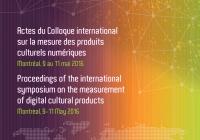By analyzing data from a wide range of sources, we regularly track the ways in which cultural goods and services are traded globally. This analysis is used to help monitor progress towards Sustainable Development Goal 17 (SDG 17) and the Convention on the Protection and Promotion of the Diversity of Cultural Expressions, which specifically calls for efforts to balance the flow of cultural goods and services, especially between developed and developing countries.
For example, the UIS report, The Globalisation of Cultural Trade: A Shift in Consumption--International Flows of Cultural Goods and Services, 2004-2013, takes an in-depth look at the export and import of cultural goods and services around the world. While highlighting both the heavyweights and emerging players in this trade, the report also shows which products are gaining and losing ground, especially with the digitisation of products such as music, movies and newspapers.
The digital age also poses a new set of measurement challenges. In response, we are looking for new sources of data and cooperation across international organizations to help improve data on cultural trade for countries at all levels of development.

